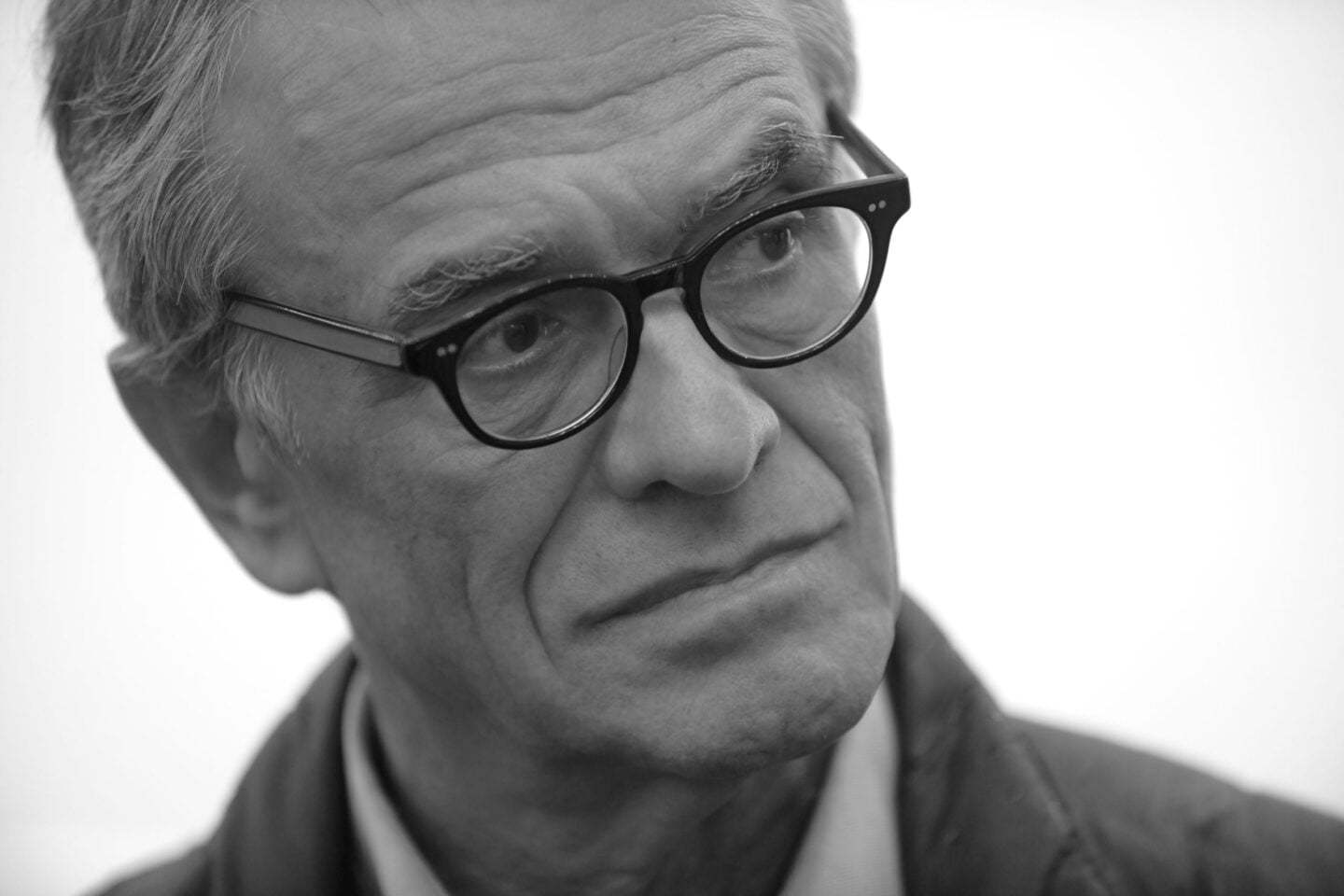
Haris Vlavianos
- Greece
- Zu Gast beim ilb: 2003, 2007, 2015, 2022
Haris Vlavianos was born in Rome in 1957. He studied economics and philosophy at the University of Bristol and political science and history at the University of Oxford, but language, heritage, and his present home make him a Greek author.
Readers with an interest in the field cannot fail to notice Vlavianos’s interest in the poetry of classic contemporary Greek writers such as Konstantinos Cavafis, George Seferis, and Nikos Karousos. Parallels between his verse and that of English-language poets he has translated, like Wallace Stevens and John Ashbery, are just as evident. Vlavianos is always able to maintain a balance between abstraction and sensuality, between rational reflection and creating a suggestive atmosphere. A frequent theme of his poetry is history [both as a concept and as a sequence of events]. His poems usually deal with the twists and turns in his family’s fortunes, which he consciously treats as archetypical examples of emotional dependency, loss, or betrayal. Eroticism and love, on the other hand, appear in his work both in their ambivalence and as the elemental root of happiness. Poetry itself and its endangered status are also a source of inspiration for him. Some of his poems refer directly to current philosophical discourse. Vlavianos expresses himself in a rare elegance of language, combining a basic commitment to formal transparency with a few selectively used syntactical and lexical violations. The sound of this language, despite the structural variety in his verse, gives the reader the impression of reading a stylistically unified body of work. Perhaps this special tone best attests to Vlavianos’s qualitative enrichment of European poetry.
His poetry collections include »O aggelos tis istorias« [1999; tr: The Angel of History] and »Meta to telos tis omorphias« [2003; tr: After the End of Beauty], both nominated for the Greek National Prize. He has also published numerous translations, most recently three collections by the American Nobel Prize winner Louise Glück, as well as works by T.S. Eliot, Emily Dickinson, and many others. In the 2014 autobiographical novel »To aima nero« [2014; tr: Blood into Water], in 45 prose miniatures of varying length, the author examines scenes of his life against the backdrop of settings such as Rome, São Paulo, or Athens and tells the archetypal story of injury and forgiveness. His most recent volume of poetry, »Aftoprosopografia tou lefkou« [2018; tr: Self-Portrait of White], won the National Poetry Prize, the Poetry Prize of the Academy of Athens, the Critic’s Poetry Prize, and the Readers’ Poetry Prize. His most recent work is »Tora tha miliso ego« [2021; tr: Now it’s my Turn to Speak], a dramatic monologue about his relationship with his sister, who died of an overdose three years earlier.
Haris Vlavianos lives in Athens, where he teaches history and history of ideas at the American College of Greece and creative writing at Patakis. He is the publisher of the acclaimed literary journal »Poiitiki« [Poetics].
Date: 2022
Der Engel der Geschichte
Romiosini
Köln, 2001
[Ü: Dadi Sideri u. Dimitra Visaitou]
Nach dem Ende der Schönheit
Hanser
München, 2007
[Ü: Torsten Israel]
Brief an Ezra Pound
Romiosini
Köln, 2017
[Ü: Torsten Israel]
Blut ist Wasser
Roman in 45 Akten
Romiosini
Köln, 2017
[Ü: Torsten Israel]
Urlaub in der Wirklichkeit und andere Gedichte
Romiosini
Köln, 2017
[Ü: Torsten Israel, Dadi Sideri u. Dimitra Visaitou]
